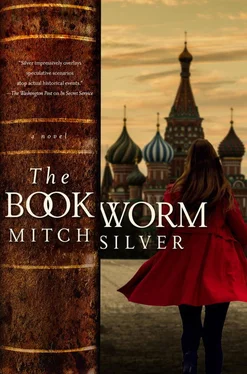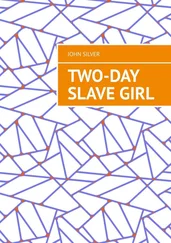The tolling of the bell overhead, always a surprise even when you were waiting for it, shook the windows in their frames. Lara let the echoing sound of the final note dissipate completely before briskly striding through the door to her lecture hall for the first time as a full Professor.
Greeting the seventy or so students who’d made their way to their seats with a curt “Good afternoon,” she dropped the dog-eared copy of her second published book, An Introduction to Geohistory , on her desk with a thud, the better to emphasize the gravity of the subject.
“What makes history… history? Do great men make history? Gandhi… Napoleon… Peter the Great… Julius Caesar? That’s what all the textbooks used to say for hundreds of years.
“Or is it the Big Idea ? ‘All men are created equal.’ ‘From each according to his ability, to each according to his needs.’ Even, ‘the will of Allah is the law of the land,’ as the Sharia would have it. Do ideas determine history?
“Maybe you are an economic determinist. Without onerous royal taxes, there would have been no Magna Carta, no Boston Tea Party, no summoning of the Estates General. Some say, absent a ruinous postwar inflation that had people trundling their currency around in wheelbarrows, there would have been no Hitler or Mussolini. That, without a generation of unemployed Third World youth, ‘Islamic Fascism’ would have no foot soldiers.”
Lara withdrew a laser pointer from her bag and switched it on. “I suggest to you that all those beautiful theories are, well, theories.” She turned and ran the red laser dot over the giant map of the world on the wall behind her from east to west.
“ This is what causes history. All this… stuff… that’s called the planet Earth. Question: why would an insignificant body of water, barely thirty kilometers long and three and a half wide, with no fishing to speak of, be fought over at least nineteen times in recorded history and another, ten times as large and teaming with aquatic life, be so unremarkable that two warring navies have never faced off in its waves?” After years of practice, she used her pointer expertly.
“Why is the Bosphorus the belle of the ball and”—she swung the laser way to the west—“why is Long Island Sound history’s wallflower? Why are the nomadic tribes of one mostly uninhabitable desert in Arabia incomparably rich and another group living in the equally inhospitable Gobi unspeakably poor?
“Why were the political histories of the island empires of Great Britain and Japan, so similar in size, such polar opposites?
“By the end of the term—once we’ve had our field trip to the State Archives and you’ve learned the kind of material that exists to answer those questions and to prove or disprove all those beautiful theories—you will have mastered all this. As you will prove to me when you hand in your term papers.”
It was a typical first lecture. Afterward, as she was packing up, Lara said, “For those of you who will be otherwise engaged this Friday, I leave you a question to ponder: if there had been no Great Wall, would the Chinese be more—or less—dominant in world affairs than they are today?”
She closed the cap on her laser pen and stuck it in the outer pocket of her handbag. Turning to go, she noticed a hand was raised. “Yes, the young man in the back?”
A student with red hair cropped close to his head got to his feet; was that a smirk? “Does ‘otherwise engaged’ have anything to do with Conception Day, Dr. Klimt? Will you be otherwise engaged?”
The room broke out in laughter, and Lara went with the flow. “If it does and if I am, I’ll conceive of a way to keep that fact to myself. Have a good day.”
She watched them file out the door, the usual mix of eager beavers and slackers, trying to guess by their looks which ones were which. Turning back to the room, she was startled to see the young man who’d asked the question still sitting in the last row. Then he began to clap.
“ Bravo , Dr. Klimt, excellent lecture.”
“ Spasibo . Are you a student of mine or are you auditing this class, Mr… .?”
“Call me Alexei. And no, I’m not a student; more of a messenger. I have something to give you.”
He got up, and Lara could see he carried a shopping bag under his arm as he worked his way down the aisle and over to where she was. She noted the dried mud on his shoes and the tattoos covering his neck. No, not a student.
“Something for me? An apple for the teacher?”
“A whole orchard.”
He was standing in front of her now, holding the bag open so she could look inside. It held a standard shipping box, with a torn label addressed to someone with a name ending in “—simov.” Nestled within some sort of old cellophane wrapping, brittle and disintegrating, were tins that looked a little like cans of tennis balls. The whole thing had a musty, dead smell.
A water-stained cardboard shipping tag, the writing on it lost in places, had worked free from the cellophane and lay loosely across the top. The remnants of a red wax seal still adhered to the tag.
He was smiling that I-know-something-you-don’t-know smile all Russian men are endowed with at birth. “Before you teach another bunch of innocents your theory about the causes of war and peace and history,” he said, “I thought you might actually want to know the truth.”
Now she smiled. “The ‘truth’? It’s in there?”
“You bet your sweet ass. And it is sweet, by the way.”
“I think you’d better go, Alexei.”
“You’re right, I was out of line. What can I say… I’m uncouth. But as a messenger, I’m first-rate. Here.”
He put the paper handles of the bag firmly in her hand and closed her fingers around it. “You know what these tins are, don’t you?”
She peered in once more. “They look like the Dictaphone cylinders I listen to in the archives.”
“Once again, bravo , Dr. Klimt. Or is it brava , I can never remember. You’re looking at six Dictaphone recordings that just came to light. They’re full of testimony by one of the men who started the Great Patriotic War.”
“How did you get them?”
He grinned. “The word ‘commandeered’ comes to mind.”
“Have you listened to them?”
“No one has, not in almost seventy years.”
“Then, how do you know what—?”
“Trust me, Dr. Klimt, we have ways.”
“This is madness.” She turned and put the shopping bag down on the lectern behind her, reaching for her geohistory text to put it back in her shoulder bag.
The young man quickly shifted the shopping bag on top of her textbook, keeping it there. “Your whole beautiful theory… all that Romanian oil and Ukrainian wheat and lebensraum the Germans needed: bullshit, Larissa Mendelova. I dare you to go to your hideout in the Arkhiv, listen to the recordings, and see if your precious geohistory still holds any water.”
Her professional pride at stake, Lara reached into the bag for one of the tins. He stopped her and rummaged in his pocket for a white cotton glove, which he put on before reaching into the bag. He saw the quizzical look on her face and said, simply, “Fingerprints,” as he held out one of the cans to her.
Lara could see a label on top that read, “Coward interview, 04-10-44, Cylinder Three.” In English. She looked back at him, questioningly. “1944? From the war? Who was the coward?”
The man smiled. “Not the coward. Noël Coward, actor and playwright. He was one of the conspirators.”
She threw up her hands. “No, it’s all too crazy. You’re telling me an English writer started the war that killed twenty-five million of our people? I don’t believe it.”
Читать дальше












